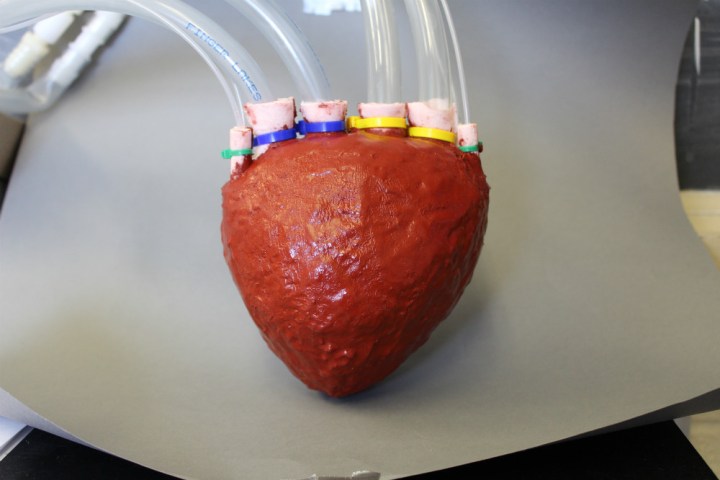
Said to feel a lot like a memory foam mattress, the polymer material developed by the research team can be easily made into any shape and contains modifiable channels and chambers through which fluids can be pumped.
Related: Scientists create algorithm that lets artificial legs re-tune themselves on the fly
Cornell University researcher Rob Shepherd explained the material’s versatility in a video, saying, “We can change [its internal] pores to how we want, so we can get more or less connectivity across the material for our fluid to pass through. It’s also very soft so we don’t have to apply a lot of pressure to get fluid to move through the pores.”
Impressed with the scientists’ efforts, doctors and others in the medical field are hoping the special foam can one day be used as an assistant machine for a heart, or even as a heart replacement, Shepherd said.
The material actually starts as a liquid before being shaped using molds created with a 3D printer. Shepherd describes it as a “cheap, low-cost process that we can do over and over again to iterate our designs, so we can go through many different shapes and styles.” Such a process could enable the creation of artificial organs built precisely to a patient’s specific requirements.
Besides artificial organs, the lightweight material could also be useful for prosthetic body parts and soft robotics, the research team said.


